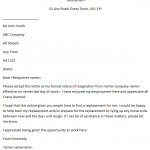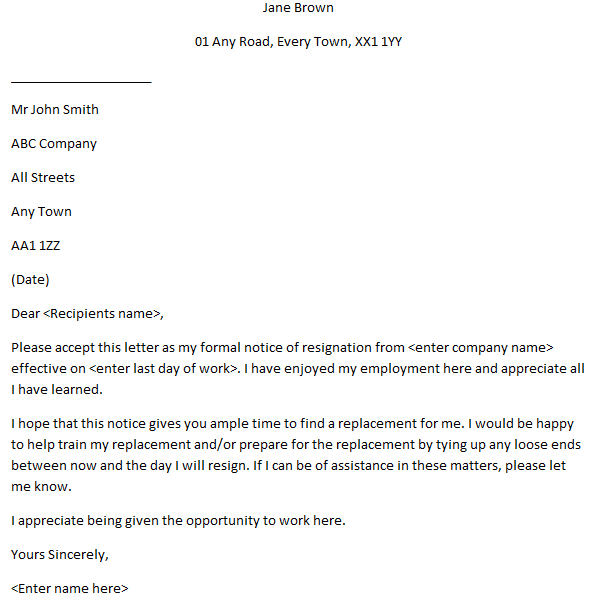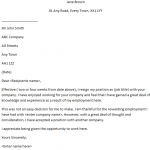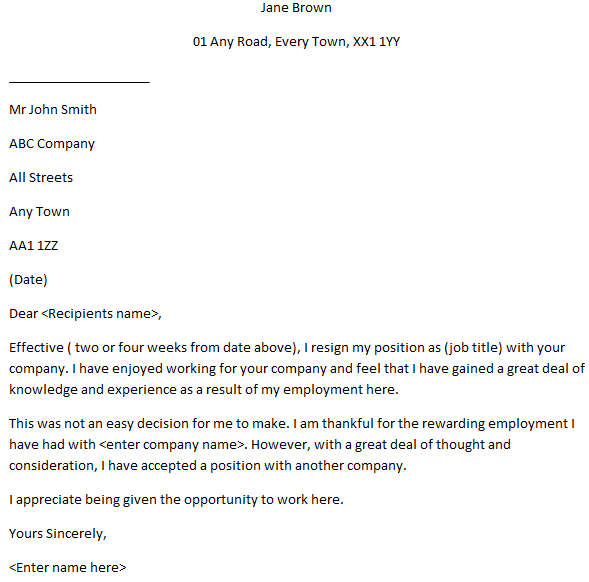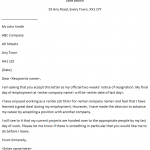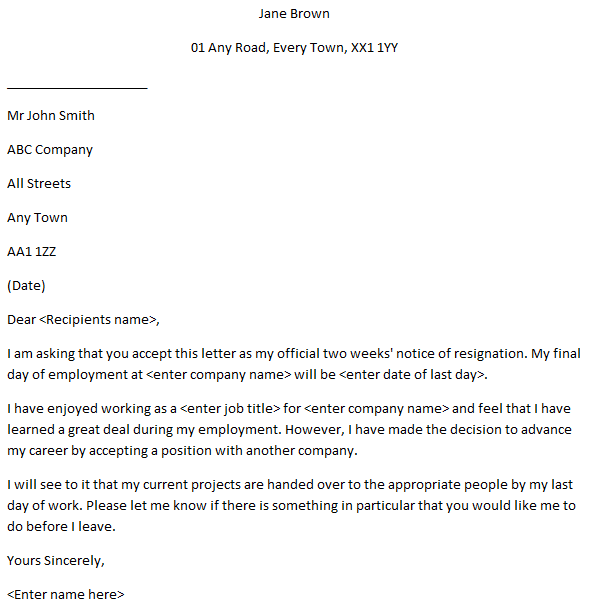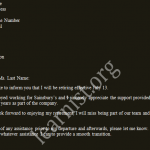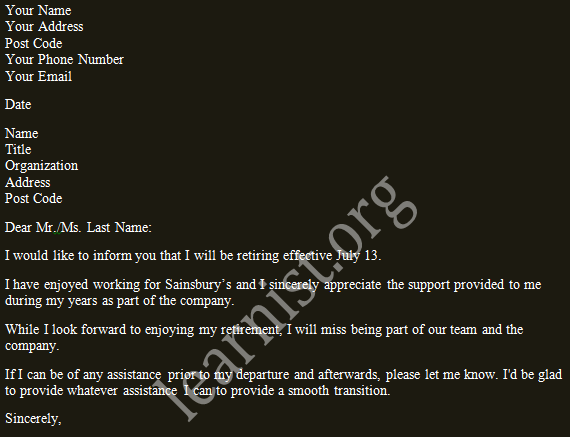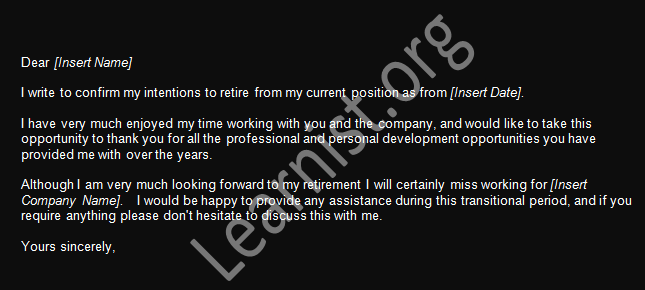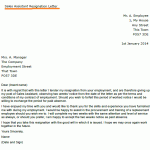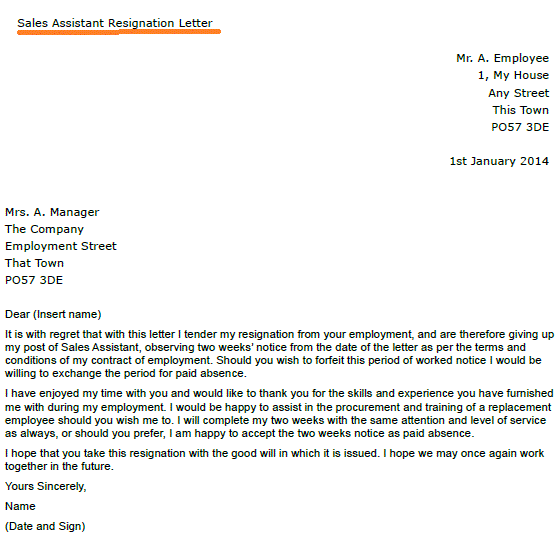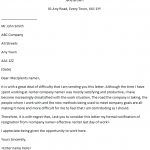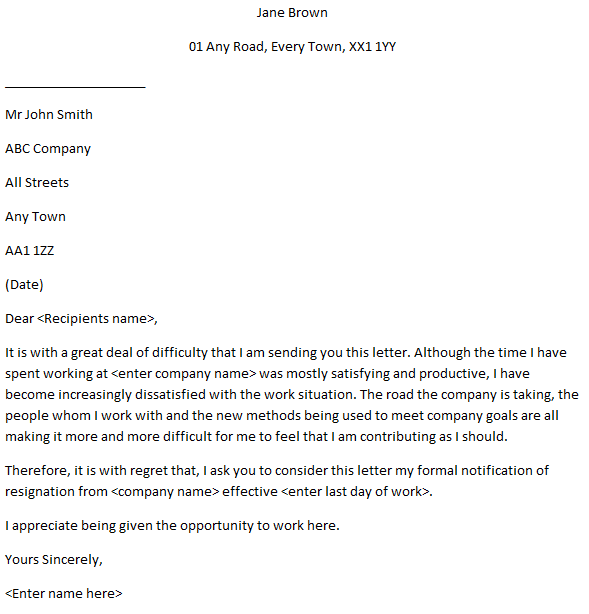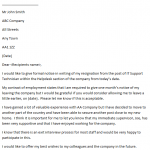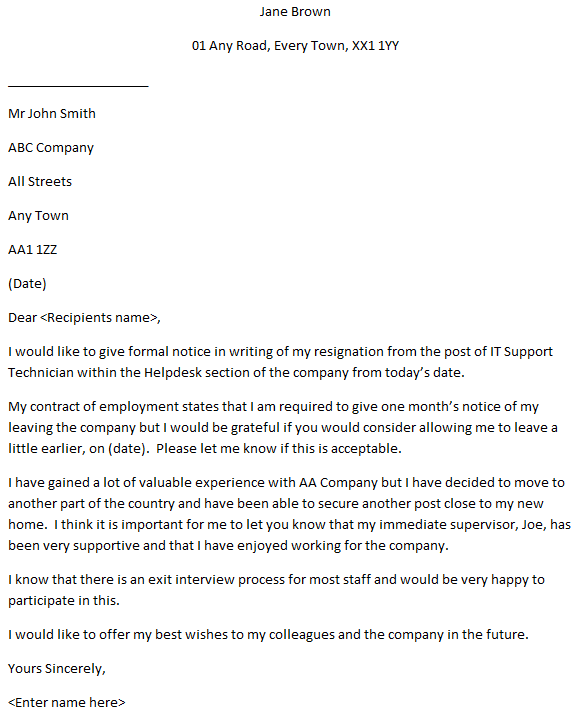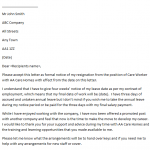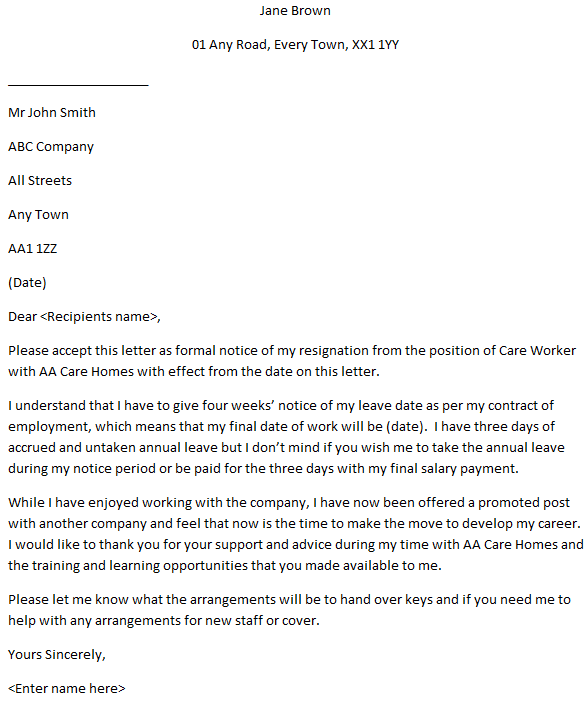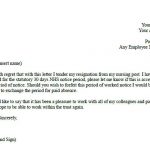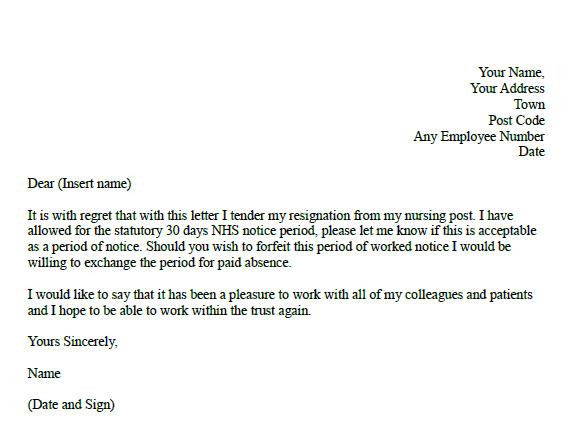General Letter of Resignation Example. If you want to quit your job then it’s best to write a formal resignation letter. Here is an example of resignation letter.
General Letter of Resignation Sample
Date
Manager’s name
Company name
Company address
Dear <enter name of manager>,
Please accept this letter as my formal notice of resignation from <enter company name> effective on <enter last day of work>. I have enjoyed my employment here and appreciate all I have learned.
I hope that this notice gives you ample time to find a replacement for me. I would be happy to help train my replacement and/or prepare for the replacement by tying up any loose ends between now and the day I will resign. If I can be of assistance in these matters, please let me know.
I appreciate being given the opportunity to work here.
Kind regards,
Your signature
Your typed name
Another example:
I am writing to provide formal resignation. Let us meet to discuss a departure date that coincides with the assurance of pay your notice requirement provides me. I would like to make my best effort to meet any reasonable expectations to ensure a smooth transition out.
I look forward to tying that all up to the best extent possible so that my service may end on the next second Friday, shift-end, 3 p.m., at the plant buzzer at Exeter, N.H., where I will be stationed as Shift Lead. I have other plans that start right up after that.
I have my folder from signing up with Exeter Cannery. Let’s meet as soon as you feel it works best to begin winding things down without any interruption to my performance and service.
I do know you wanted me for more responsibilities next quarter. I appreciate that consideration for sure.
Thank you,
Marge

